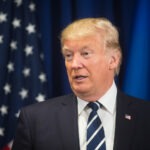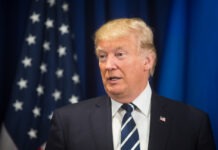The White House swiftly addressed the resignation of Bill Owens, the executive producer of CBS’ “60 Minutes,” who stepped down on Tuesday, April 22, 2025. This change comes as the newsmagazine grapples with a $20 billion lawsuit from President Donald Trump.
“Karma is a b—h,” White House Communications Director Steven Cheung wrote on X after Owens’ resignation was announced. Cheung labeled the outgoing executive producer as “a liar and a fraud.”
Owens, who took the helm of “60 Minutes” as executive producer in 2019, cited his inability to preserve editorial independence as the motivation for his departure. He explained that he could no longer make “independent decisions” regarding the show’s direction and decided to step aside to allow the program to progress.
The resignation occurs amidst an intensifying legal confrontation between President Trump and CBS News. Trump has filed a lawsuit seeking $20 billion in damages, claiming the program edited an interview with his 2024 presidential opponent, Kamala Harris, in a manner that misrepresented her answers, thus giving her an unfair edge during the campaign.
Cheung offered further insights into the disagreement, asserting that Owens had contacted the Trump campaign to request an interview. He mentioned that Owens called during the campaign for an interview with Trump, but when it became apparent the show would not offer balanced coverage, the Trump team declined. Cheung added that after the Harris segment aired, CBS misrepresented their interactions with the Trump campaign.
The lawsuit, initially filed for $10 billion but subsequently amended to $20 billion, alleges CBS engaged in “malicious, deceptive, and substantial news distortion” by broadcasting two different segments of Harris’s response to the same question about the Israel-Hamas conflict.
CBS News has denied these accusations, stating it aims to be “clear, accurate, and on point” when editing interviews. The network has filed motions to dismiss the lawsuit, describing it as “baseless” and “an affront to the First Amendment.”
Paramount Global, CBS’s parent company, is reportedly in settlement discussions with the Trump administration. These negotiations occur as Paramount seeks approval for an $8.4 billion merger with Skydance Media, which requires regulatory approval from bodies such as the FCC.
Trump-appointed FCC commissioner Brendan Carr has indicated that the “60 Minutes” case will be considered in the merger’s review. The regulatory body has also ordered CBS to provide unedited transcripts of the Harris interview to assess if it breached “news distortion” rules.
The situation has captured the attention of media watchdogs and free press advocates. Some critics interpret the events surrounding Owens’ departure as a reflection of increasing pressure on news organizations. The Washington Post described his resignation as part of a broader trend indicating an “erosion of media freedom” and the ability of journalists to work without fear of retaliation.
This dispute is not the first conflict between Trump and “60 Minutes.” The president had previously declined a “60 Minutes” interview during the 2024 campaign after learning his responses would be fact-checked. Recently, the program faced criticism from Trump’s team over its coverage of his cabinet selections for his second administration.
Following a segment critical of several Trump nominees, including Pete Hegseth for Secretary of Defense and Matt Gaetz for Attorney General, Cheung described the show’s reporting as “disgusting bias & unhinged” and urged viewers to boycott the program.
Owens’ career at CBS News spanned nearly four decades, during which he held multiple senior positions before assuming the lead of “60 Minutes.” He had also recently taken on the additional role of senior executive producer of the “CBS Evening News.”
Industry observers are closely watching who will succeed Owens at the renowned news program and how this leadership change might impact the ongoing legal battle with the White House. The outcome of this dispute could have significant implications for press freedoms and the relationship between media organizations and the administration.











